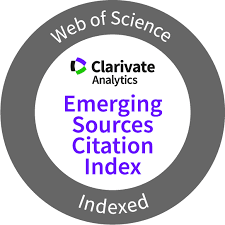Youth Empowerment as Catalyst for Sustainable Development in Nigeria
Palabras clave:
Government Policies, Corruption, Decision-making, Youth-BlotResumen
The field of youth development sits at the frontier of new opportunities for research and practice. Likewise, sustainability of development has remained an area of interest and attracted debates among academia. In advanced economies, development has been successfully sustained over a long period of time but has proofed difficult in developing economies. Though different strategies to empower youths have been put in place in Nigeria, the resulting effects are not sustainable with the rate of poverty and unemployment still on the high side. Thus, there is the need to review the application of sustainable development concepts and its practicability in Nigeria. This paper is an attempt in this direction. To this end, this study reviews youth empowerment programme in Nigeria with the view to identifying the challenges militating against its success and proffer solutions. Primary data was collected through personal telephone interview with the commissioners of industries, commerce and trade in twenty-two states (out of 36 states) in Nigeria and secondary information was extensively gathered through research reports and academic publications. Analysis of data collected was done in frequencies and percentages. The paper found that youth empowerment is hinged on the fact that more than half of the Nigerian population is youth, about 70% of the population are poor with more than 29.5 per cent unemployed. Youth empowerment programmes were coordinated through Federal Ministry of Youth Development in Nigeria. Such programmes include Youth Empowerment Educational and Vocational Training, Youth Empowerment Agriculture (YEAP) and Job creation programmes such as SURE – P; CSWYE; YOUWIN; NAPEC; NAPEP together with Youth Empowerment Financial Intervention which were done through Non-Governmental Organisations (NGOs), Government, Philanthropists and Financial Institutions. All these programmes were found not to be successful because of some identified challenges: poor implementation of policies, misappropriation of funds, youths not being adequately involved in decision making process, and corruption among others. The paper affirmed the benefits embedded in the adoption of youth empowerment programme as a strategy for sustainable development and thus advised government to focus attention more on the youth empowerment by involving them more in the decision-making process.











